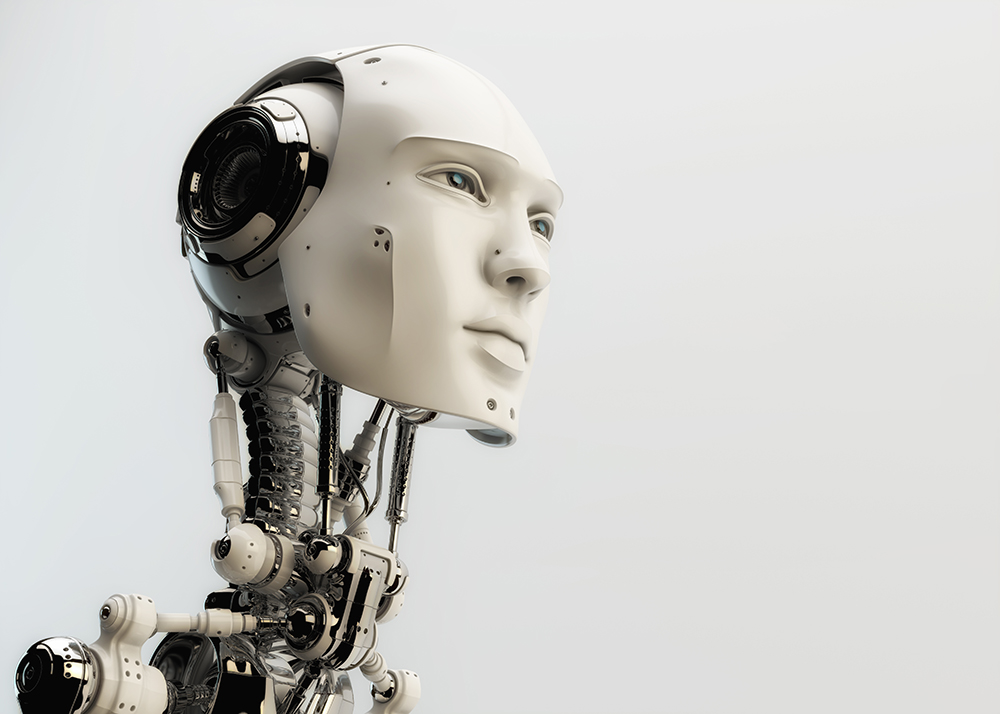The twin poles of the modern imaginarium about technology and society can be represented by two masterpieces of popular culture. In James Cameron’s film The Terminator (1984) and its sequels, a global computer system called Skynet becomes sentient and proceeds to try to exterminate the human race by means of time-travelling Austrian bodybuilders. In Iain M. Banks’s ‘Culture’ novels, by contrast (beginning with Consider Phlebas, 1987), a space-faring humanlike species has created superintelligent machines, known as Minds, which automate all the labour of production, leaving people free to pursue artistic activities and extreme sports. As our tech-bro overlords race to create proper AI, then, the present question is whether engineered superintelligence will lead to annihilation or fully automated luxury communism.
It takes the eminent economist Robert Skidelsky quite a while to arrive at this question, and he mentions Banks only in passing (in a dismissive reference to the fact that the novels have inspired Elon Musk), and The Terminator not at all – which is strange since ‘building Skynet’ has become acknowledged shorthand for the dangers of creating a superintelligent computer system, supposing that is possible. Skidelsky, though, takes it to be obvious that it isn’t: ‘Science tells us that we cannot create such a being.’ No it doesn’t: since true AI does not yet exist, the only science of it is the draft version being written for the first time by those trying to create it.
What The Machine Age aims to be, instead, is a grand history of ‘the mechanical philosophy’, applied to work and society, as it began in Europe and was exported to the rest of the world. It starts with the complaint that ancient Greece ‘produced philosophers, not scientists’ – a proposition that is both terminologically anachronistic and false, at least if you suppose that proving the Earth is spheroid or accurately measuring the distance from the Earth to the Moon count as science. (Aristotle is mentioned positively later, though not for having conducted experiments in optics or showing that boiling and then condensing water desalinates it.)

Science and technology do not, indeed, appear to be the author’s strong suit. Since the 18th century, he complains elsewhere, ‘technology has lost all contact with imitating nature’, though the Wright brothers spent many hours studying the gliding flight of the turkey buzzard, while today tiny experimental drones imitate the flight mechanics of insects, and AI itself began rapidly improving only when ‘neural nets’ – mathematical approximations of biological brain connections – began to be used.
Happily, the author is on surer ground in his social and economic analysis, as he tells an elegant story about the emergence of capitalism from feudalism and the subsequent technological explosion. His readings, fond or bristly, of David Ricardo, Adam Smith, Marx and Keynes add up to a bracing argument against the utopianism of technological change, especially the version we often hear according to which it doesn’t matter if innovation destroys some jobs because other jobs will arise to take their place. Yes, overall and eventually; but, as Skidelsky insists, this is no comfort to the individual laid-off steelworker, and the ‘transition’ has historically taken up to a century. ‘Dispelling anxiety about automation has become a major part of business apologetics,’ he comments waspishly. Readers may remember with a dark chuckle how only a few years ago everyone was told that they needed to learn to code in order to ‘upskill’ themselves for the shiny new future. Not so much now, when ChatGPT can do the coding for you.
Still we were always going to arrive at this point, Skidelsky’s argument runs, once we began to think of human beings as machines, and then fungible sources of Taylorised labour subject to ever more atomic surveillance, latterly in our personal as well as professional lives. Curiously, Skidelsky thinks the outbreak of the first world war was a reaction to this tendency, offering ‘an escape, a release of the spirit, from the psychological and social strains of 19th-century industrialisation’, despite the fact that it was precisely the first large-scale mechanised war, slaughter on an industrial scale.
Another strand of The Machine Age is a cultural history of ideas of technology and society, conducted through mild outbursts of literary criticism. We get pages of précis of Frankenstein, Brave New World, Nineteen Eighty-Four and the like, though Skidelsky’s more modern examples run only to mainstream ‘literary fiction’ (Ian McEwan’s Machines Like Me, 2019) rather than the science fiction (Banks, or especially the American short story genius Ted Chiang) where such themes are investigated in the most sophisticated ways.
For all the foregoing reasons this is a book that, despite the serene tone of an academic long view, is remarkably, and sometimes enjoyably, eccentric and even cranky. (Skidelsky thinks the phasing out of cash is a plot by ‘banks and states’ to keep better tabs on our spending; more likely this long-term trend accelerated during the pandemic because people didn’t want to handle virus-encrusted coins and notes.) Skidelsky doesn’t take seriously the arguments of the AI accelerationists themselves that their work might kill everyone, contenting himself with pointing out the eschatological nature of their Armageddon hunger. Yet for him any solution to the problem of the machine, it seems at last, must also be in some sense religious: his picture of a hopeful alternative is a kind of sociable monasticism.
Up till then, he has diagnosed the ongoing ‘torment of modernity’ as arising from ‘the attempt to build societies in some crucial senses inhospitable to human habitation’. Now he laments the absence of ‘moral heroes’ in politics, and sums up the current impasse thus: ‘We cannot imagine a different paradigm because we can no longer imagine a God who cares for us.’ One might object that plenty of people can still imagine a God who cares for them; the problem is that He cares for no one else.






Comments